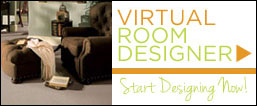Luxury Vinyl Tile | Glossary
Acclimation: The adaptation of the laminate floor to its installation environment.
Adhesive: a substance that bonds the floor to the subfloor.
Dye lot: Each time a production of material is run, different dye or color lots are created. Each manufacturing production process cannot re-create the exact same color lot or dye lot each time.
Modular patterns: Modular patterns are patterns that use different size pieces to create a new overall pattern
Plank: boards widths that are 3" in width or greater.
Resilient: These floors have some "give" or elasticity when you walk across them. This category includes linoleum, cork, rubber and specialty resilient.
Seam: The line or area where two tiles or planks meet together
Roller: Heavy tool used after installing vinyl sheet or vinyl tile to press the flooring into the adhesive and to help to remove any entrapped air.
Subflooring: A rough floor on top of which the vinyl flooring is applied.
Substrate: The surface on which the vinyl flooring will be laid. If installing over a wood substrate, an underlayment will generally be necessary. A concrete substrate will not require an underlayment but will require some floor preparation.
Vinyl: Made from a mixture of polyvinyl chloride and plasticizer, it is usually flexible and non-porous. Pigments are added for color.
Wearlayer: A layer of material applied to the top surface of vinyl flooring. The thickness of the wearlayer varies with each vinyl product collection, or series, and is generally measured in mils. The thickness of a mil is about the same as a page in a phone book. Premium wearlayers offer superior resistance to stains, scuffs and scratches. How long a vinyl floor will look new and fresh is based on the wearlayer’s performance.

